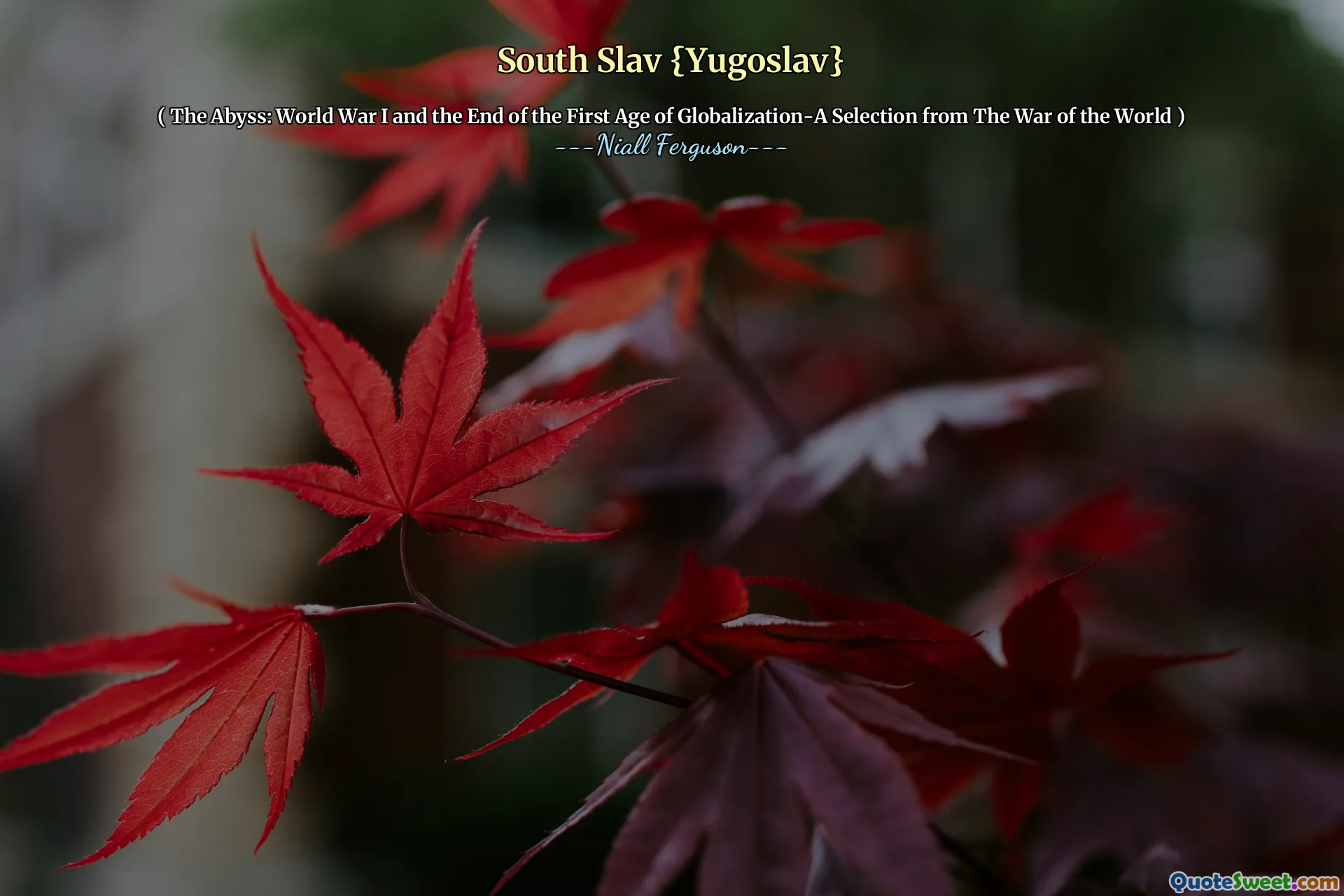
South Slav {Yugoslav}
In "The Abyss: World War I and the End of the First Age of Globalization," Niall Ferguson explores the complexities surrounding the South Slavs during the tumultuous period leading up to and during World War I. He highlights how the tensions and nationalist movements in the region significantly contributed to the war's outbreak, emphasizing the intertwined fates of various ethnic groups within the former Yugoslavia. Ferguson illustrates the impact these dynamics had on the broader European landscape and the eventual dissolution of empires.
The author provides a detailed analysis of the role that ideological strife and national identity played in shaping the events of the time. The struggles of the South Slavs reflect larger themes of conflict, loyalty, and the chaos that often accompanies significant geopolitical shifts. Ferguson's work serves as a reminder of the lessons learned during this era, urging readers to reconsider the implications of nationalism and the fragility of peace in a globalized world.











